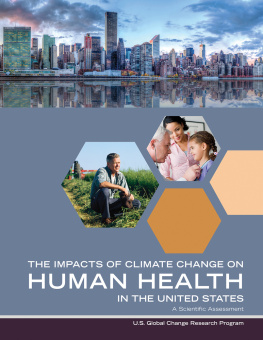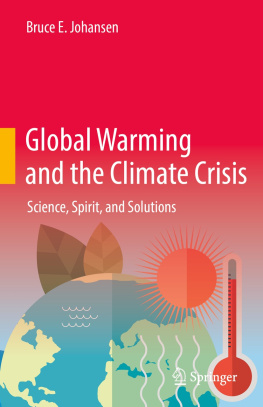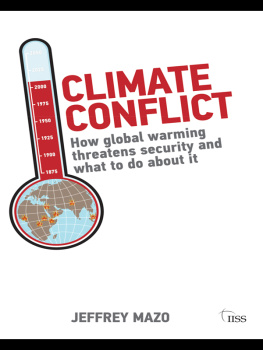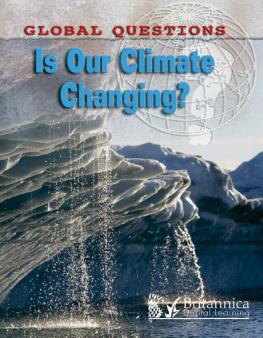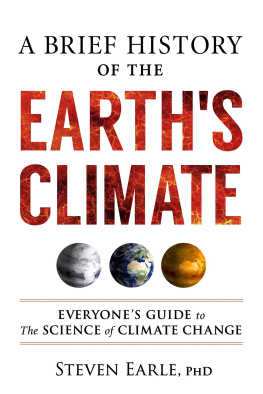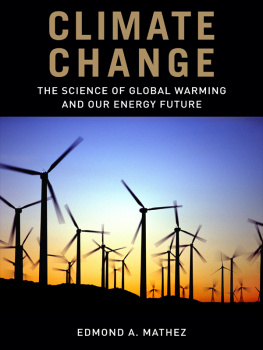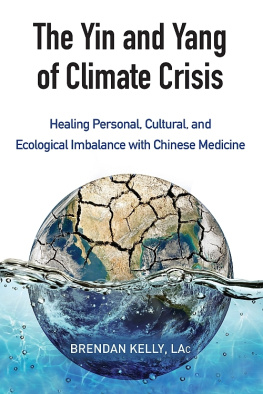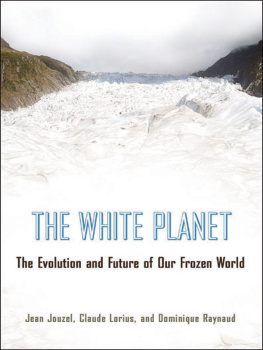Changing Planet, Changing Health
Changing Planet,
Changing Health
How the Climate Crisis Threatens Our
Health and What We Can Do about It
Paul R. Epstein, MD,
and Dan Ferber
Foreword by Jeffrey Sachs

University of California Press, one of the most distinguished university presses in the United States, enriches lives around the world by advancing scholarship in the humanities, social sciences, and natural sciences. Its activities are supported by the UC Press Foundation and by philanthropic contributions from individuals and institutions. For more information, visit www.ucpress.edu .
University of California Press
Berkeley and Los Angeles, California
2011 by The Regents of the University of California
Library of Congress Cataloging-in-Publication Data
Epstein, Paul R.
Changing planet, changing health : how the climate crisis threatens our health and what we can do about it / Paul R. Epstein and Dan Ferber; foreword by Jeffrey Sachs.
p. cm.
SUMMARY: Spotlights the threats of global warming and offers a systems approach for possible treatments. Decades spent as a physician and public health scientist have allowed Dr. Epstein to examine and now comment on the dynamics of global politics, climate change, and global health. Together with journalist Dan Ferber, he expresses a fundamental need for communities (of all scales) and industries (of all kinds) to reach together for a low-carbon economy. They make their argument by combining personal accounts with accurate histories and industry case studies. What enfolds is a prescriptive narrative for repairing an ailing planetProvided by publisher.
Includes bibliographical references and index.
ISBN 978-0-520-26909-5 (hardback)
1. Medical climatology. 2. Climatic changesHealth aspects. I. Ferber, Dan. II. Title.
RA793.E67 2011
616.9'88dc22 2010051311
Manufactured in the United States of America
19 18 17 16 15 14 13 12 11 10
10 9 8 7 6 5 4 3 2 1
This book is printed on Cascades Enviro 100, a 100% post consumer waste, recycled, de-inked fiber. FSC recycled certified and processed chlorine free. It is acid free, Ecologo certified, and manufactured by BioGas energy.
Contents
Illustrations
Foreword
This is a book about complexitythe complexity of humanitys predicament at the start of the twenty-first century. The predicament is easy to state, hard to understand, and perhaps hardest to solve. With nearly seven billion people on the planet producing and consuming at an unprecedented rate, humanity is deranging the worlds ecosystems and threatening the survival of our own species and millions of other species with which we share the planet. How we are doing that is a scientific detective story of the first order, told with brilliance and relish by one of the worlds great ecological detectives. What we are going to do about this remains hidden in the fog of complexity. The answers here are incomplete and may be wrong in many specifics. However, this fascinating book is important because it is a cry to take our survival seriously and to address it from the vantage points of science, ethics, and a moral commitment to the most vulnerable among us.
Paul Epstein is a pioneer of the new complexity. His intelligence, commitment, and perseverance have helped to change the way we employ science to serve society, and to alert the world to our harrowing risks. Readers will be entranced, edified, and inspired by Epsteins journey, which began when he was a young medical doctor learning the basics of tropical health in Mozambique and has carried him to the forefront of earth-systems science. Ever since that early start, Epstein has displayed the traits of a great scientific problem solver. He is both practitioner and theorist. He brings his erudition to problems but allows the problems themselves to challenge his ideas. He is ready to take great risks, intellectual and personal, to find truth and solutions. And he simultaneously leads his colleagues and perseveres on his life mission. In the way that energy flows through a complex ecosystem, Epsteins lifetime scientific journey flows across the disciplines of public health, ecology, climatology, and social change. And he leaves a crucial mark in each area, inspiring new insights and scientific efforts.
Earth-system change is a new and still emerging field. As Epstein and coauthor Dan Ferber make clear, the Earth is changing much faster than our ability to understand the changes or to control them. While the basic idea of climate change has been known scientifically for well over a century, the needed intensive and large-scale scientific exploration of climate change in all its crucial dimensionsincluding climatology, ecology, public health, engineering, and economicsis a much newer enterprise of just the past quarter century. And while Epstein and others have skillfully put the pieces of the jigsaw puzzle into place, nature has not been kind enough to wait for humanity to catch up in our understanding. The evidence is clear that the rate of climate change is accelerating. We are reaching thresholds of monumental danger, and according to many leading scientists, weve already surpassed some of those thresholds.
This wonderful book brilliantly illustrates many of the complexities of ecosystem functions, such as the ways that slight changes in temperature can fundamentally alter the evolutionary battleground between predators and prey, or between crops and pests or pathogens. The authors breadth of knowledge and experience is vast. The case studies are fascinating. The detective work needed to explain the emergence of new diseases, or the spread of new pests, or the implications of climate change for forest fires, extreme storms, and other threats, is exceptionally and clearly described. Scholars and students will benefit enormously from these cases, which include the inspiring background stories of the scientists who unlocked the mysteries.
Readers will also share the authors mix of exhilaration and dread: exhilaration that careful study can unlock complex mysteries and dread that the biggest mystery of allwhether humans will cooperate to secure their own survivalis still mostly unsolved. The story starts roughly a quarter century ago, when issues surrounding climate change were first reaching the publics awareness and when new epidemic diseases were beginning to appear with a frightening frequency. During the quarter century to follow, we would achieve much progress in scientific knowledge, increase our modeling capacity, gain insights toward solutions, and engage political, business, and social leaders. But what has not yet happened is any real societal problem solving, certainly not at a scale and magnitude that begins to address the scale and magnitude of the threats.
The past quarter century has been filled with treaties and protocols, global meetings, declarations, campaign speeches, and of course, tens of thousands of scientific studies; yet the sum of this enormous effort has not resulted in a true global commitment to needed solutions. It is fair to say that since ratifying the UN Framework Convention on Climate Change in 1992, the U.S. Senate has taken almost no single constructive step to honor the treaty or provide U.S. leadership toward global solutions. Epstein and Ferber explain the paradox with insight and fervor. Corporate propagandists have filled the airwaves and media with lies and confusion. As one tobacco company infamously wrote in a secret memo during the battles over tobacco and lung cancer, Doubt is our product.
Nor are the economic and engineering solutions easy. Fossil fuels are at the very heart of the world economy. They have powered the escape from poverty achieved by most of the planet. As the authors make clear, many low-carbon energy alternativessuch as ethanol for driving, nuclear power, or carbon capture and sequestrationraise serious unsolved concerns. These are not reasons for inaction, to be sure, but they do exemplify the complexity of the economic challenges on top of the ecological ones. There is as yet no convincing pathway to a global solution.
Next page

